Understanding the Critical Role of Homemaking and Home Care in Managing Heart Failure in Seniors
Elderly individuals with heart failure (HF) often rely heavily on homemaking and home care support to manage their complex health needs effectively. This comprehensive approach encompasses daily activity assistance, medication management, symptom monitoring, and nutritional support, which together foster improved health outcomes, quality of life, and emotional wellbeing. As the prevalence of heart failure rises with aging populations, developing and implementing targeted home-based care strategies becomes essential for maintaining autonomy, reducing hospital readmissions, and addressing the social and psychological needs of elderly patients.
The Role of Homemaking and Home Care Support in Managing Heart Failure
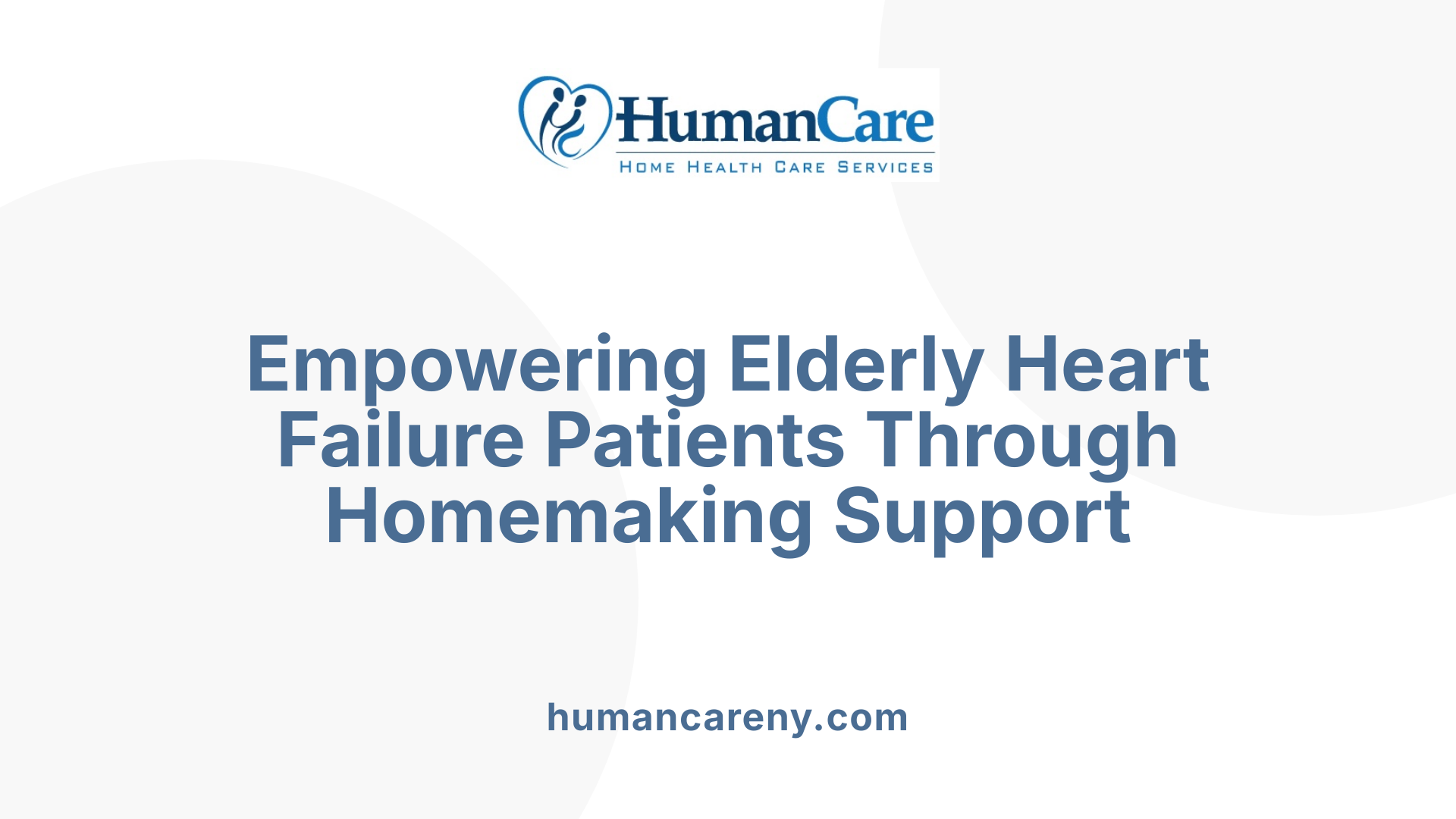
What is the role of homemaking and home care support in managing heart failure among the elderly?
Homemaking and home care support are essential parts of managing heart failure (HF) in older adults. These services help patients perform daily activities such as grooming, bathing, and mobility, which are crucial for maintaining independence and safety.
Care providers assist with medication management, ensuring that patients take their prescriptions correctly and on schedule. This reduces the risk of medication errors and prevents complications related to improper dosing.
Monitoring symptoms is a vital component. Caregivers keep track of changes in weight, swelling, shortness of breath, and fatigue, which can indicate worsening HF. Early detection allows for timely medical intervention, reducing hospital admissions.
Nutritional support is also important. Home care providers help prepare heart-healthy, low-sodium meals that assist in controlling water retention and blood pressure, key factors in HF management.
Multidisciplinary teams, including nurses, physicians, dietitians, and social workers, work together to develop and implement personalized care plans. These plans focus on medication adherence, lifestyle modifications, and symptom control.
Continuity of care outside the hospital is achieved through regular follow-up, remote monitoring technologies, and clear communication channels between patients, caregivers, and healthcare professionals. These strategies facilitate early response to any health deterioration.
Overall, homemaking and home care support improve quality of life by enabling seniors to stay safe and comfortable at home. They foster better understanding of the condition, promote self-care, and reduce the need for emergency hospital visits.
How does integrated home care benefit elderly HF patients?
Integrated home care involves coordinated efforts among various healthcare providers to address the complex needs of HF patients. This includes education on disease management, medication management, physical activity encouragement, and emotional support.
Such approaches are linked with reduced hospital readmissions, lower mortality rates, and enhanced patient satisfaction. Tailored interventions can also help manage comorbidities and address psychosocial factors affecting health.
Technological tools like telehealth and remote patient monitoring have expanded the scope of home care, providing real-time data to healthcare teams and enabling swift adjustments to treatment plans.
Supporting emotional and social well-being
Beyond medical management, home care supports emotional health by offering companionship, counseling, and social engagement opportunities. These services combat loneliness, which is common among elderly HF patients and can worsen health outcomes.
Community resources and patient support groups can complement home care services, reinforcing education and emotional support, and helping caregivers manage stress.
In summary, homemaking and home care are integral in delivering patient-centered, comprehensive HF management. They empower elderly patients to maintain independence, improve health outcomes, and enjoy a better quality of life outside hospital environments.
Benefits of Home-Based Care for Elderly Heart Failure Patients
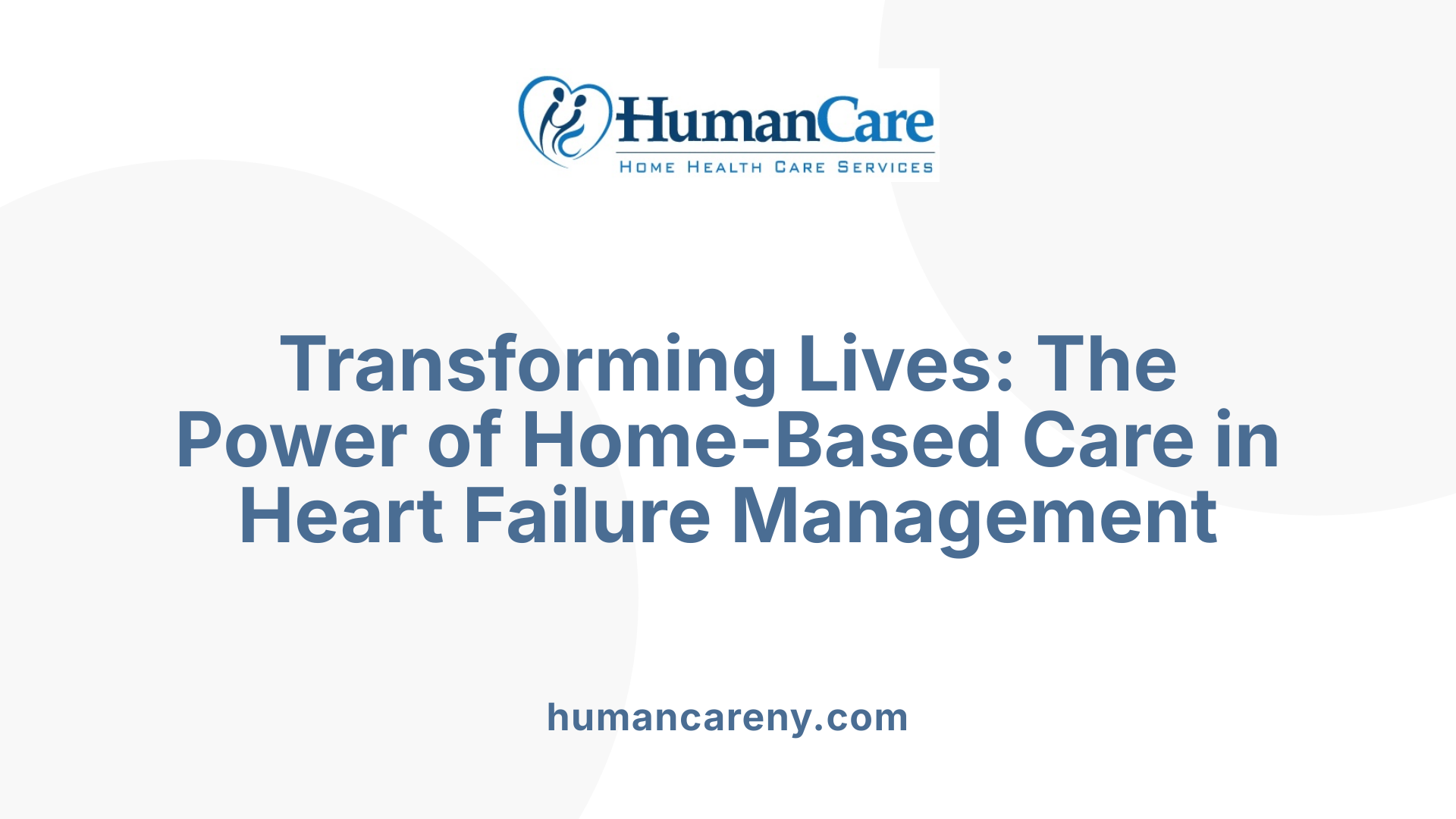
What are the benefits of home-based care for elderly patients with heart failure?
Home-based care plays a significant role in improving the health and well-being of elderly individuals living with heart failure. One of its primary advantages is enhanced symptom management. Caregivers and healthcare teams can closely monitor symptoms such as shortness of breath, swelling, fatigue, and irregular heartbeat, leading to timely interventions and preventing hospitalizations.
Increased knowledge about the condition and self-care practices is another crucial benefit. Patients and their caregivers receive education on medication management, dietary restrictions like sodium intake, physical activity, and symptom recognition. This empowerment helps patients take charge of their health, adhere to treatment plans, and make lifestyle modifications that support heart function.
Studies show that home-based care also significantly reduces hospital readmissions. By managing worsening symptoms early at home, patients experience fewer emergency visits and hospital stays, which lowers healthcare costs overall. Additionally, these interventions have been associated with increased survival rates and improved quality of life.
Familiarity with the home environment contributes to emotional and mental well-being. Patients often feel more comfortable and less anxious, which can positively influence physical health outcomes. Consistent support from caregivers enhances independence; they assist with daily activities such as meal preparation, transportation, medication adherence, and exercise encouragement.
Technological advancements further bolster the effectiveness of home care. Telemonitoring devices can track vital signs and symptoms remotely, providing real-time data to healthcare providers. This early detection system facilitates prompt adjustments in treatment, preventing exacerbations and hospitalizations.
Overall, home-based care offers a personalized, holistic approach to managing heart failure in elderly patients. It combines medical support, lifestyle education, and emotional comfort, fostering improved outcomes, increased satisfaction, and a better quality of life.
| Aspect | Benefits | Additional Details |
|---|---|---|
| Symptom management | Early detection, timely intervention | Monitoring signs such as edema, weight changes, and breathing |
| Knowledge and self-care | Empowerment, treatment adherence, lifestyle modifications | Education on diet, exercise, medication, stress management |
| Hospital readmissions & costs | Reduced readmissions, lowered healthcare expenditure | Prevention of severe episodes through early symptom recognition |
| Survival & quality of life | Increased longevity and mental well-being | Providing emotional support and comfort in familiar surroundings |
| Environment familiarity | Comfort, reduced anxiety, emotional stability | Enhances mental health and supports independence |
| Technology support & telemonitoring | Early issue detection, adjustments to therapy, less hospital visits | Utilizing devices to remotely monitor patient health |
In conclusion, integrating home-based care strategies benefits elderly heart failure patients by addressing physical symptoms, fostering informed self-care, reducing healthcare costs, extending survival, and enhancing overall quality of life. The combination of personalized medical attention and the comfort of home creates a supportive environment conducive to better health outcomes and patient satisfaction.
Caregiving Strategies in Homemaking for Heart Failure Management
What caregiving strategies are important in homemaking care for managing heart failure in the elderly?
Effective caregiving in the home setting is vital for seniors living with heart failure (HF). It involves a range of strategies designed to support patient health, safety, and emotional well-being.
One of the core elements is symptom vigilance. Caregivers should regularly monitor crucial indicators such as weight, edema (swelling), and breathing patterns. Daily weight measurement helps detect fluid retention early, which is often a sign of worsening HF. Watching for increased swelling or shortness of breath can enable prompt medical intervention.
Medication adherence is another pillar. Caregivers need to understand each medication’s purpose, manage timely doses, and observe potential side effects. They can set reminders, keep organized pillboxes, and coordinate with healthcare providers during appointments to optimize treatment.
Dietary management, especially sodium restriction, is crucial. High sodium intake can lead to water retention, exacerbating HF symptoms. Preparing low-sodium meals, understanding nutrition labels, and encouraging adherence to dietary restrictions help control water buildup and prevent hospitalizations.
Physical activity encouragement supports overall health and mood. Light exercises suitable for seniors, like walking or gentle stretching, improve cardiovascular fitness. Caregivers should motivate participation, ensure proper precautions, and collaborate with healthcare teams to tailor activity plans.
Beyond physical health, psychosocial support and effective communication enhance emotional resilience. Listening to concerns, providing reassurance, and discussing fears or frustrations help reduce stress. Maintaining an open dialogue also facilitates better understanding of the patient's evolving needs.
Regular medical consultations are essential. Caregivers can assist with scheduling, transportation, and accompanying patients to appointments. They also participate in educational sessions about managing HF, understanding treatment options, and recognizing warning signs.
The use of technology offers innovative support. Telehealth services and remote patient monitoring devices enable real-time health data collection, early detection of deterioration, and timely interventions. Caregivers should be familiar with these tools and advocate for their use.
Support groups and community resources also play a vital role. Connecting with organizations like the American Heart Association or local caregiver support networks can provide emotional encouragement, practical advice, and respite.
Balancing involvement and independence fosters dignity. Caregivers should promote autonomy where possible, assisting with tasks without undermining confidence. Planning for different stages of the illness, including advanced care and end-of-life preferences, ensures comprehensive support.
Ultimately, caregiving requires a compassionate, informed approach that integrates medical knowledge, emotional support, and adaptive use of technology. These strategies collectively help seniors manage HF effectively at home, improving quality of life and reducing health crises.
Impact of Homemaking Support on Symptoms and Recovery
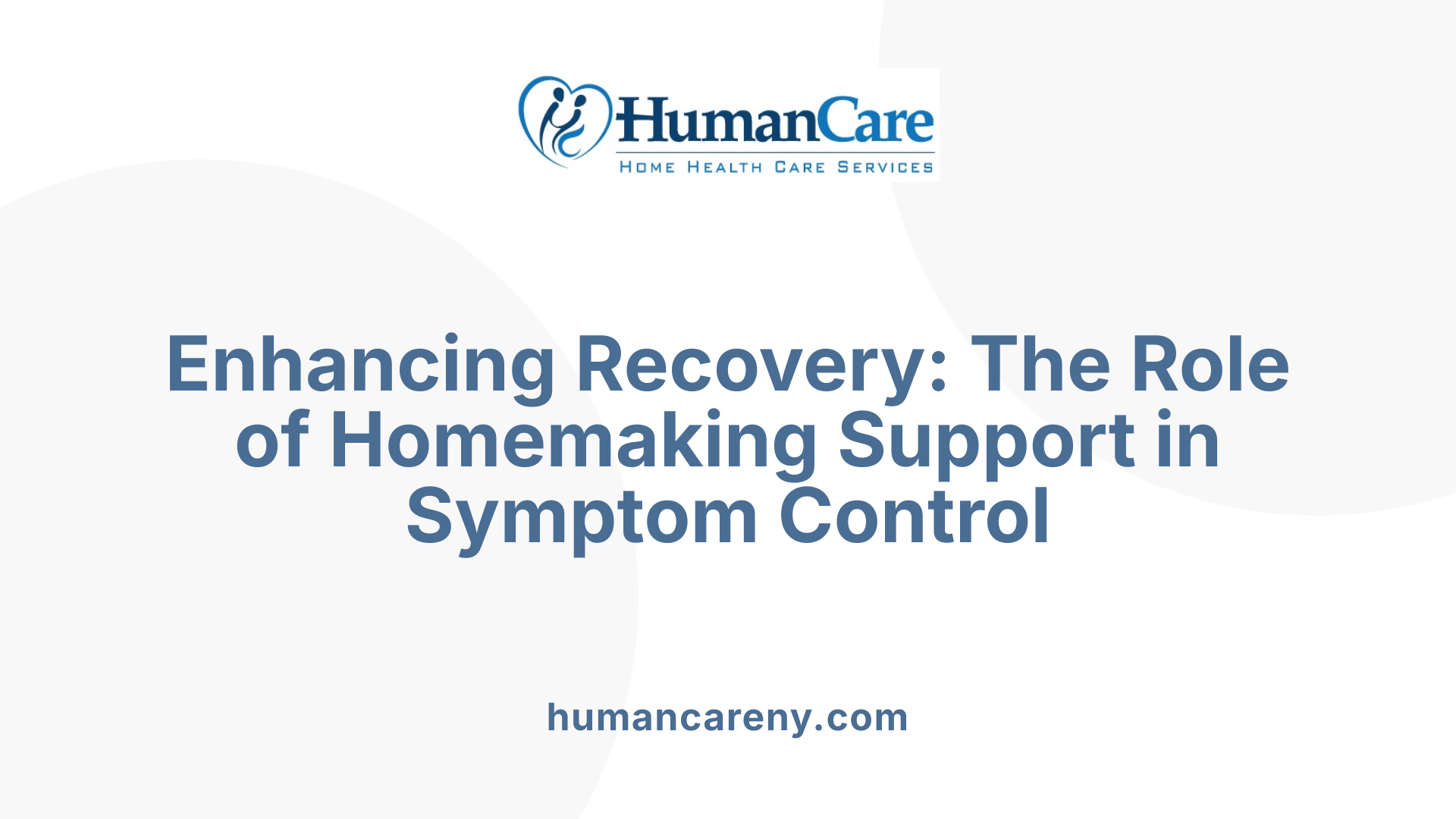
How does homemaking support impact symptoms and recovery in elderly individuals with heart failure?
Homemaking support plays a crucial role in managing symptoms and facilitating recovery for elderly patients with heart failure (HF). Family caregivers and home care providers assist with routine activities such as medication management, dietary adherence, monitoring vital signs, and recognizing early signs of worsening symptoms like increased swelling, shortness of breath, or fatigue.
By providing consistent assistance in these areas, caregivers help ensure that patients follow their complex treatment plans effectively. This proactive involvement allows for early detection of symptoms that might indicate deterioration, enabling timely medical intervention and reducing the risk of hospital readmissions.
Structured home health programs often include patient education about symptom recognition and self-care behaviors, strengthening patients' ability to manage their condition at home. These programs emphasize lifestyle modifications such as low-sodium diets, exercise, and fluid management, which are vital for recovery and long-term health maintenance.
Emotional support from loved ones is another essential component. Encouragement and companionship help patients stay motivated to adhere to their treatment routines and make necessary lifestyle changes. Stress management and emotional well-being are linked to better health outcomes and reduced symptom severity.
Research indicates that home-based interventions, with active caregiver involvement, lead to significant improvements in quality of life, physical function, and overall health stability. Caregivers serve as the vital link between healthcare systems and patients, ensuring treatments are maintained and complications are promptly addressed.
Prevention of hospitalizations is a primary goal of homemaking support. By closely monitoring symptoms and ensuring proper medication and dietary practices, caregivers help prevent exacerbations that require urgent care.
Furthermore, supporting lifestyle modifications such as improving diet, encouraging safe physical activity, and managing stress directly influences the management of HF symptoms. These strategies contribute to better functional capacity, emotional health, and ultimately, a more stable and improved recovery process.
In summary
Homemaking support improves symptoms and recovery in elderly HF patients by aiding medication adherence, early symptom detection, behavioral reinforcement, and emotional well-being. Caregivers' proactive engagement not only prevents complications but also fosters a sense of security and independence for patients, enhancing their overall quality of life and helping them remain active within their social and familial environments.
For detailed strategies and support mechanisms, individuals can refer to resources such as the American Heart Association and the Family Caregiver Alliance, which offer guidance on effective caregiving practices and accessing community and healthcare support networks.
This comprehensive support system underscores the importance of a coordinated approach to home-based care, ensuring elderly individuals with heart failure receive the continuous, personalized assistance necessary for optimal health outcomes.
Evidence Supporting Effectiveness of Home Care Services for Elderly HF Patients
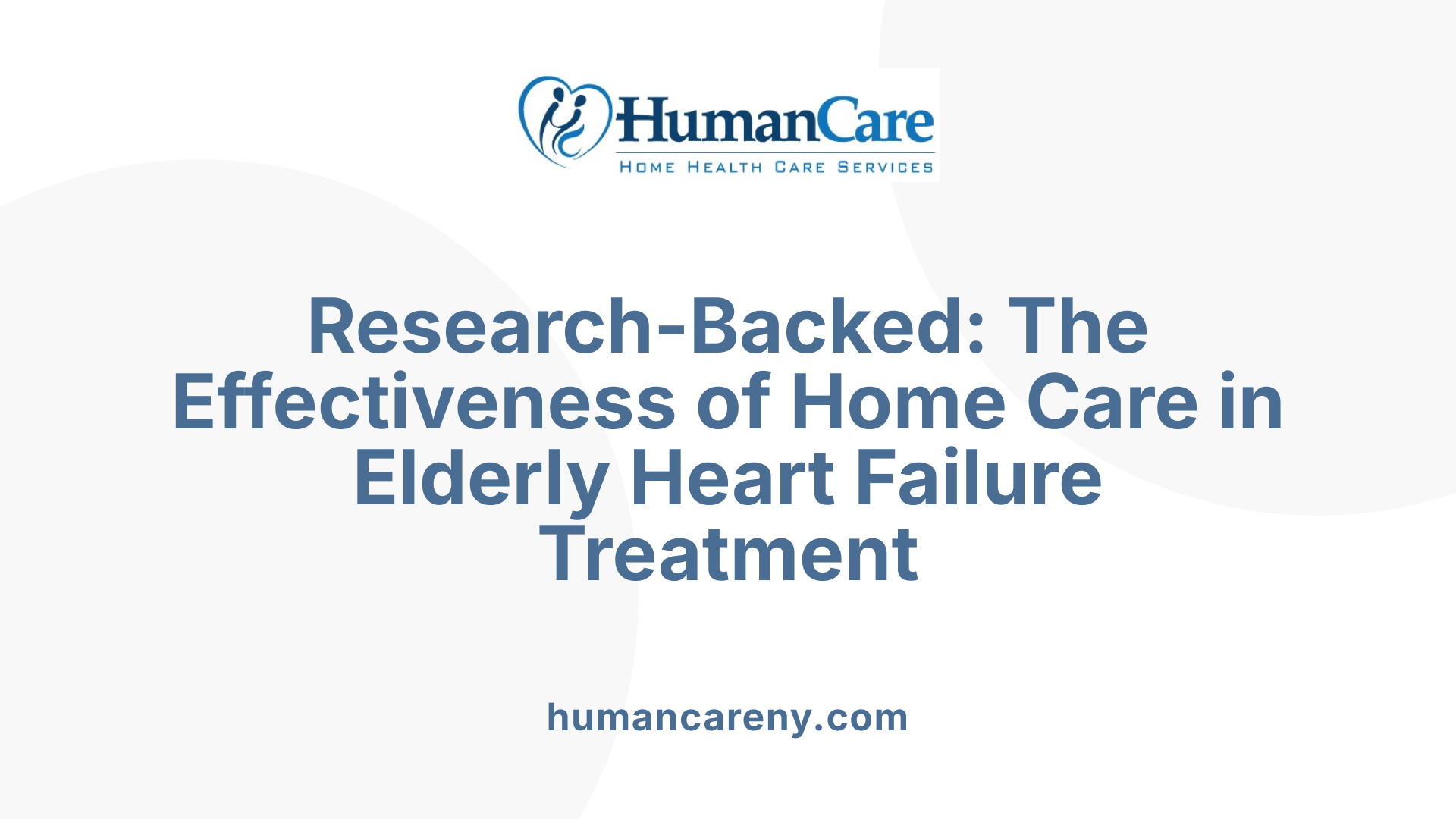
Is there evidence supporting the effectiveness of home care services for elderly patients with heart failure?
Research indicates strong support for home care services in managing heart failure among elderly patients. Multiple studies, including randomized controlled trials, have shown that home-based interventions can lead to notable improvements in patient outcomes.
One of the most significant benefits observed is the reduction in hospital readmissions. Care strategies such as regular nurse visits, telemonitoring, and transitional care programs enable early detection of worsening symptoms, allowing prompt medical intervention before hospitalization becomes necessary.
Mortality rates also tend to decrease with comprehensive home care. These programs often incorporate medication management, symptom monitoring, and patient education, which together contribute to better disease control and fewer deaths.
Cost savings is another key advantage. Effective home care reduces the need for frequent hospital stays, thus lowering healthcare expenditures. The use of multidisciplinary teams—including nurses, physicians, and social workers—ensures that care is well-coordinated and tailored to individual patient needs.
Beyond clinical outcomes, patient satisfaction significantly improves through home-based models. Patients appreciate the comfort of being cared for in familiar surroundings, which also supports emotional well-being. These services help in maintaining independence, boosting confidence in managing daily activities.
Early detection of exacerbations is facilitated by technologies like telehealth, which enable continuous health status monitoring. When combined, patient education and routine check-ins help identify subtle changes that signal worsening heart failure.
Furthermore, multidisciplinary interventions—integrating medical, psychological, and social support—have been shown to enhance overall care quality. They promote adherence to medication regimens, lifestyle modifications, and self-care practices.
In summary, the body of evidence underscores that structured home care strategies offer meaningful clinical benefits such as reduced hospitalizations and mortality, cost efficiencies, higher patient satisfaction, and improved early detection of health deterioration.
| Aspect | Findings | Additional Details |
|---|---|---|
| Readmission Reduction | Significant decreases observed | Nurse-led care, telemonitoring, transitional care programs |
| Mortality Benefits | Lower death rates | Ongoing patient monitoring and management |
| Cost Savings | Reduced healthcare expenses | Fewer hospital stays, efficient resource use |
| Patient Satisfaction | Increased satisfaction and comfort | Preference for home environment, personalized care |
| Early Detection | Improved monitoring capabilities | Use of technology and routine assessments |
| Multidisciplinary Care | Better health outcomes | Integrated services involving various healthcare professionals |
These findings collectively demonstrate that well-organized home care services are essential for improving outcomes in elderly patients with heart failure.
Contribution of Homemaking Care to Overall Health and Wellbeing
In what ways does homemaking care contribute to the overall health and wellbeing of elderly individuals with heart failure?
Homemaking care plays a vital role in supporting elderly individuals living with heart failure (HF) by continuously monitoring symptoms and assisting with daily routines. This ongoing oversight helps prevent the worsening of the condition, reducing the likelihood of hospital admissions caused by exacerbations.
Caregivers help ensure patients stick to their prescribed medications and maintain a heart-healthy diet, which is crucial for managing HF. They assist with activities such as preparing low-sodium meals, encouraging gentle exercise, and reminding patients of medication schedules. These actions promote better disease control and physical health.
Beyond the physical aspects, homemaking care offers emotional support through companionship and reassurance. This social interaction alleviates feelings of loneliness and depression, common among elderly patients, enhancing their mental health.
Home-based education and remote monitoring tools further empower patients by helping them recognize early signs of deterioration. Timely interventions based on these alerts can prevent hospital readmissions and improve overall health outcomes.
Creating a safe, familiar environment through home care not only enables independence but also improves the quality of life by reducing stress and providing a sense of security.
How does this care help in the prevention of exacerbations?
Regular symptom monitoring, medication adherence, and dietary management are essential elements in preventing HF exacerbations. Caregivers observe vital signs, like weight, blood pressure, and symptoms such as edema or shortness of breath, enabling early detection of issues.
Educational support helps patients understand their condition and recognize warning signs, prompting prompt action before a crisis develops.
What is the impact on mental health and social ties?
Emotional support from caregivers fosters a sense of stability and reduces feelings of social isolation. Maintaining social connections through regular caregiver interactions can improve mood and cognitive function.
The companionship also provides opportunities for patients to stay mentally engaged and motivated to follow treatment plans, further supporting their wellbeing.
How does homemaking care influence independence and quality of life?
Assisting with daily activities allows elderly individuals to remain autonomous and age at home comfortably. This independence positively influences their mental and emotional outlook, leading to a more satisfying living experience.
How do monitoring and early intervention contribute?
Continuous observation and use of remote health monitoring devices enable health professionals to catch early signs of decline. Interventions can then be initiated promptly, often preventing progression to severe episodes.
How does homemaking care address both physiological and emotional needs?
By combining medical oversight with emotional and social support, homemaking care creates a holistic approach. It addresses the physical symptoms of HF, promotes adherence to medical treatment, and simultaneously nurtures mental health and social stability.
This comprehensive care model not only extends life expectancy but also significantly improves the quality of daily life for elderly HF patients, making it an essential component of chronic disease management.
Important Considerations for Caregivers
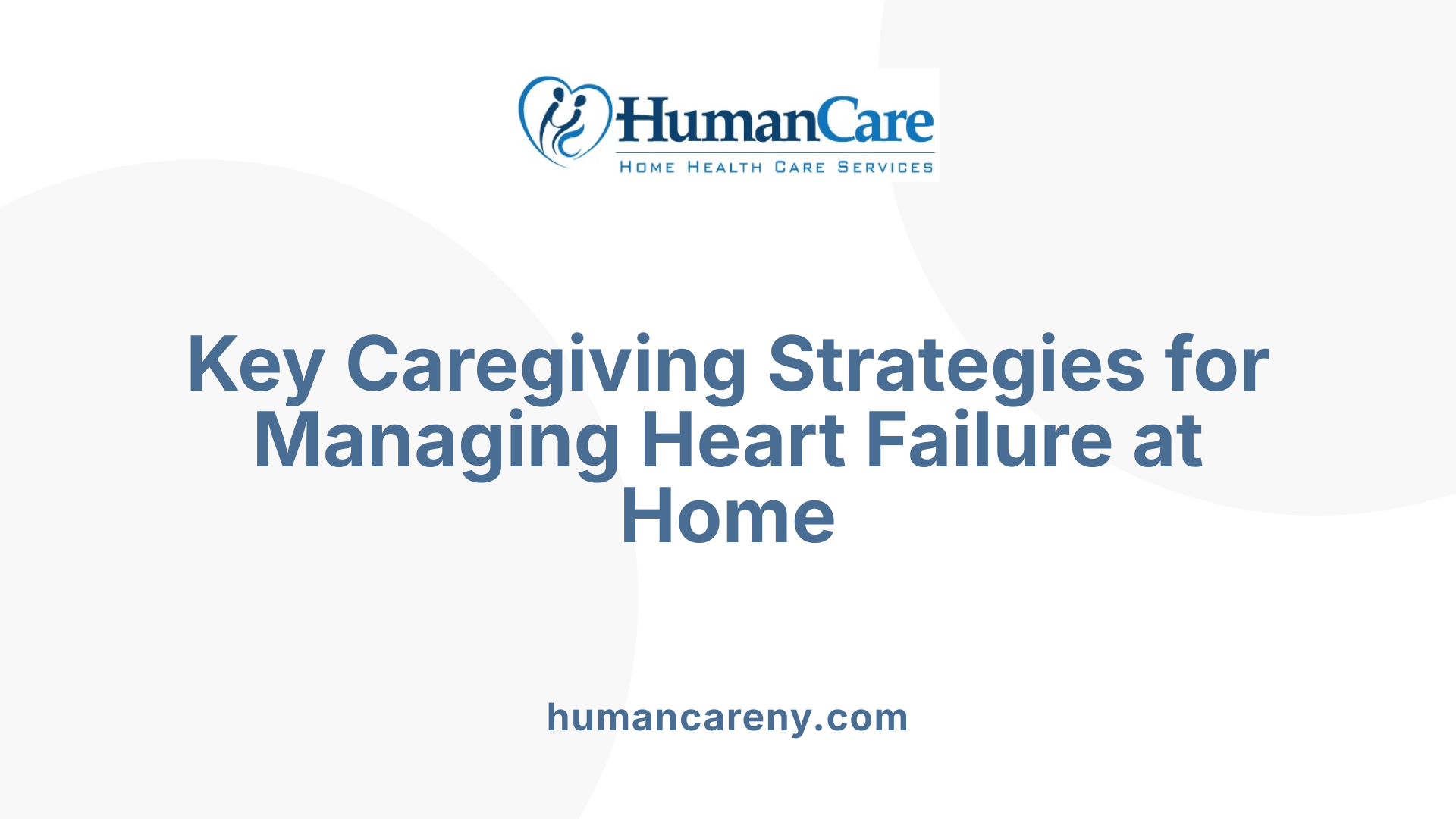
What are important considerations for caregivers of elderly individuals with heart failure?
Caring for a loved one with heart failure (HF) involves managing numerous responsibilities that directly impact both the patient's health and the caregiver's well-being. A fundamental aspect is monitoring symptoms vigilantly. This includes tracking weight changes, observing for increased swelling or shortness of breath, and noting signs of fatigue or irregular heartbeat. Early detection of worsening symptoms can prevent hospitalizations and guide timely medical intervention.
Managing medications is another vital task. Caregivers should understand each medication's purpose, potential side effects, and proper adherence techniques. Regularly reviewing medication schedules, ensuring doses are taken correctly, and discussing any concerns with healthcare professionals help maintain optimal treatment efficacy.
Promoting lifestyle changes is essential for effective heart failure management. Caregivers can encourage a heart-healthy diet low in sodium, facilitate safe physical activity suited to the patient's condition, and help with weight management. Additionally, supporting smoking cessation and moderating alcohol intake can significantly improve outcomes.
Supporting communication with healthcare professionals is a continual process. Caregivers serve as vital links between patients and their medical teams. Attending medical visits, participating in treatment discussions, and helping patients understand care plans ensures everyone stays informed and engaged.
Given the chronic nature of HF, caregivers often face emotional and physical strain. To prevent burnout, it’s important they recognize their own needs. Seeking support from health care teams, joining caregiver support groups, and accessing educational resources can provide emotional relief and practical advice.
Education plays a key role. Caregivers should be equipped with problem-solving and stress management skills, such as mindfulness techniques like the S.T.O.P. method, to cope with caregiving challenges.
Lastly, maintaining a long-term and flexible approach is crucial. Caregiving responsibilities may evolve over time, especially during disease progression or after hospital discharge. Continuous assessment of caregiver needs, flexible care plans, and leveraging community resources ensure both patient and caregiver needs are met effectively.
Supporting elders with heart failure requires a comprehensive, compassionate approach that balances patient care with caregiver health. Utilizing available support networks, educational programs, and healthcare collaborations can foster better outcomes and a sustainable caregiving environment.
Empowering Elderly Heart Failure Patients Through Comprehensive Homemaking Support
In conclusion, homemaking and home care support are foundational to the effective management of heart failure among the elderly. They help improve symptom control, foster independence, and promote emotional wellbeing. The collaborative efforts of caregivers, healthcare professionals, and technological innovations create a holistic environment that enhances patients' quality of life, reduces hospitalizations, and supports long-term health stability. Investing in caregiver education, support systems, and tailored home-based interventions is essential for optimizing outcomes and ensuring that elderly individuals with heart failure can enjoy a safer, more comfortable, and dignified life at home.
References
- Help for Heart Failure Caregivers - American Heart Association
- The impact of home care on individuals with chronic heart failure
- Family Caregiving for Individuals With Heart Failure: A Scientific ...
- How Home Care Helps Seniors Live With CHF
- Practical guide on home health in heart failure patients - PMC
- Caregiving for Older Adults With Heart Disease - AARP
- Family Caregivers for Persons with Heart Failure



